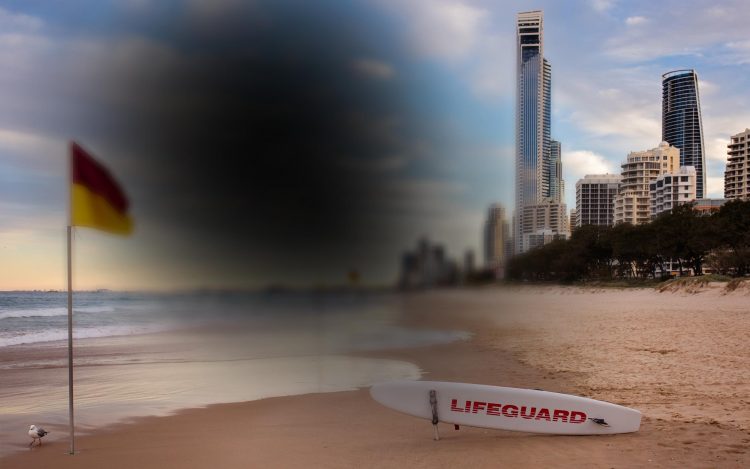Have you received a macular degeneration diagnosis? Or are you at risk of developing the condition, and want to understand what happens next? Learn more about what to expect with your vision, symptoms, and treatment available for age-related macular degeneration (AMD).
Monitoring Your Vision For Macular Degeneration
If you’ve been diagnosed with or are at higher risk of developing macular degeneration (AMD) due to a family history, it’s important to regularly monitor your vision for any changes.
AMD can cause distortion and loss of central vision while peripheral vision usually remains unaffected. Common changes you may notice include:
- • Straight lines appear bent or wavy
- • Letters or numbers appear jumbled when reading
- • Difficulty adjusting to low light levels
- • Reduced intensity of or brightness of colours
- • Gradual decline in the ability to see objects clearly
- • Dark or empty spaces blocking the central field of vision
In between your regular eye exams with your specialist, using an Amsler Grid is an easy way to monitor your vision at home.
Tests to Diagnose Macular Degeneration
An eye specialist (Optometrist or Ophthalmologist) will need to do a comprehensive eye exam to diagnose AMD.
As a guide, if you are over 50, we recommend you have an eye exam to check your macula at least every 2 years. If you are 65 or older, we recommend an eye exam every year.
However, your eye specialist will advise how often you should get your macula checked depending on your individual circumstances and whether you have a higher risk of developing AMD.
Some common tests that may be done by your eye specialist to provide a more complete clinical picture of your eye and help determine the type, location, and extent of any retinal condition, include:
To make a diagnosis of AMD, your Ophthalmologist will take your eye history and conduct a comprehensive eye examination. It is likely that your pupils will be dilated (with drops that blur your reading vision for 2-3 hours) to allow for a better examination of the inside of your eye.
An optical layered scan of the retina which can assist in the diagnosis and treatment monitoring of many retinal conditions, including AMD. An OCT scan uses light to produce very high-resolution cross-sectional images of the layers of the retina. OCT scans are also used to monitor your individual response to any treatment you have.
A non-invasive retinal imaging tool effective in the early detection of some retinal conditions as it highlights a retinal pigment (lipofuscin) which increases with retinal damage.
If your eye specialist suspects you have wet (neovascular) AMD, an ophthalmologist may perform a fluorescein angiogram which involves injection of a coloured dye (fluorescein) into a vein in the arm, followed by specialised photography of the retina through a dilated pupil. The dye highlights retinal blood vessels to shine brightly (“fluoresce”) under a special light, and this test helps identify abnormal blood vessels and retinal changes to allow diagnosis and treatment.
Allows examination of blood flow within the choroid and retina.
Treatment for Macular Degeneration
Unfortunately, there is no cure for age-related macular degeneration (AMD). However, there is effective treatment for the most aggressive form, wet (neovascular) AMD, which can save your eyesight, if treatment is started in a timely manner.
In all patients, we recommend smoking cessation, UV protection and modifying diets to increase green leafy vegetables and adequate servings of fish.
In the case of wet AMD, the protein Vascular Endothelial Growth Factor (VEGF) is predominantly responsible for the abnormal growth of blood vessels and fluid leakage under the retina.
Intravitreal injections of Anti-VEGF (Anti-Vascular Endothelial Growth Factor) is the most common treatment to neutralise the VEGF protein and allow a regression of the abnormal blood vessels. It will also lead to reduction of excess fluid within the macula.
Intravitreal injections work to stabilise and prevent vision decline, however, need to be started early to gain the maximal effect of treatment.
Will I Go Blind?
As AMD affects the central vision, people will usually possess good peripheral vision for mobilizing or spotting movement.
However, as AMD progresses, it causes blurred, distorted, and lost central vision, and can significantly impact important tasks such as driving, as well as watching TV or reading.

Important Things to Remember
If you are being treated for wet (neovascular) AMD, it is important to remember that it is not a cure, and ongoing regular treatment is critical to stabilizing your vision and preventing further vision loss.
Important things that will help ensure you receive the best treatment possible include attending regular scheduled appointments with your Ophthalmologist, promptly communicating any problems you experience after any injections, using your Amsler Grid at home each day to monitor your central vision, and immediately reporting any sudden changes in your vision to your Ophthalmologist.